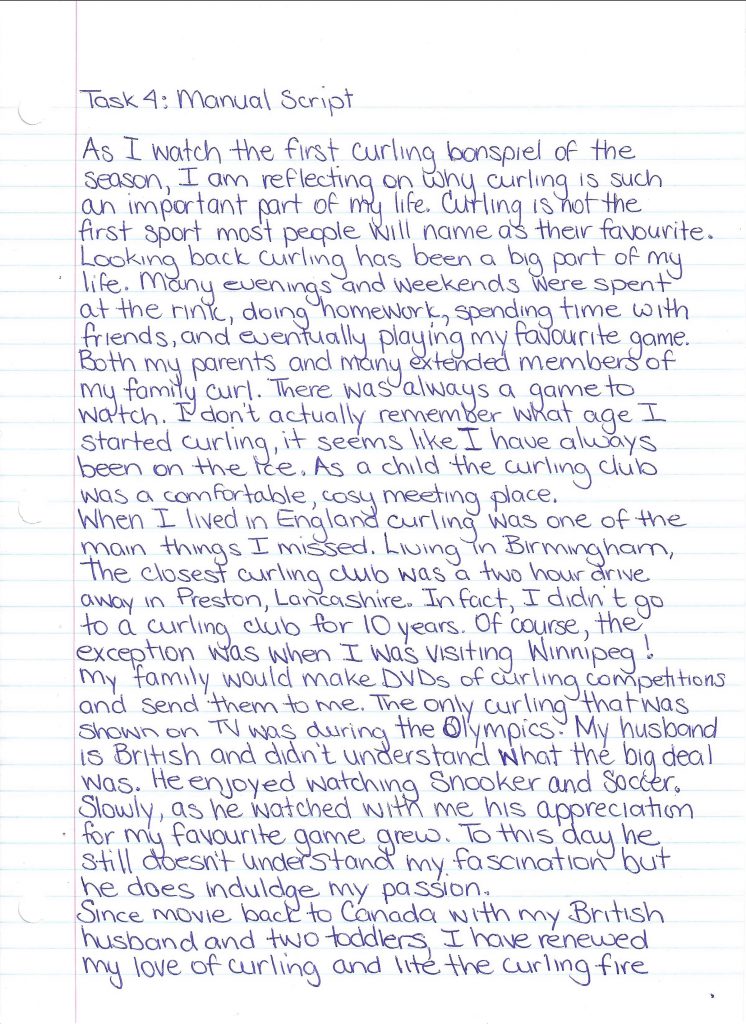Normally, I write by using voice to text on my computer. I rarely write by hand or type anymore. I chose this task because being Dyslexic means that I can find writing intimidating. I worry about spelling mistakes and sentence structure as there are two areas of weakness for me. I struggle with grammar and even word choice because I am conscious of my spelling struggles. I will often choose a word that I know how to spell over a word that I do not know how to spell. Will carrying out this assignment, I decided to just let my mistakes be on the page. I decided to only edit if I could correct the error quickly. You will see this when I write the word Olympics. I started with a lowercase ‘o’ and changed it to an uppercase ‘O’ without erase or whiting anything out. I chose to use a pen so that I couldn’t erase my mistakes. I decided that if I needed to I would cross out a mistake and keep going just like I ask my student to. My choice of pen and paper did play a part in how I edited my work. I think the most significant difference between writing by hand and using mechanized forms of writing is the fact that you are creating the letters which feel more authentic than typing or speech to text. You feel a part of your writing, a sense of handmade ownership. I am proud that I completed this assignment because it reminds me that I can do this. I may find it hard but I am capable of writing. I prefer using a computer to produce my written work. The computer has spelling and grammar checks that I can access. This gives me confidence in my work being correct that I lack when handwriting. I know that I am capable but the computer allows me work faster and make less mistakes.



Hi Kelly,
I really enjoyed reading your post and hearing more about how you approach writing with dyslexia. When you talked about this in our live session yesterday, it made me think differently about the kinds of accessibility tools that support all types of learners. In my work, I focus a lot on accessibility, but I’ve mostly thought about it in terms of visual or auditory impairments. Your post reminded me that accessibility also includes supporting people who face challenges with the writing process itself.
I also related to what you said about feeling more confident when using a computer. This assignment was actually the first time I had tried using voice-to-text, and I was surprised by how freeing it felt to just talk and see my words appear. Even though the transcript had plenty of errors and filler words, it showed me how useful these kinds of tools can be in getting ideas out in a stream of consciousness.
Thank you for sharing your experience and broadening my perspective on accessibility and learning.